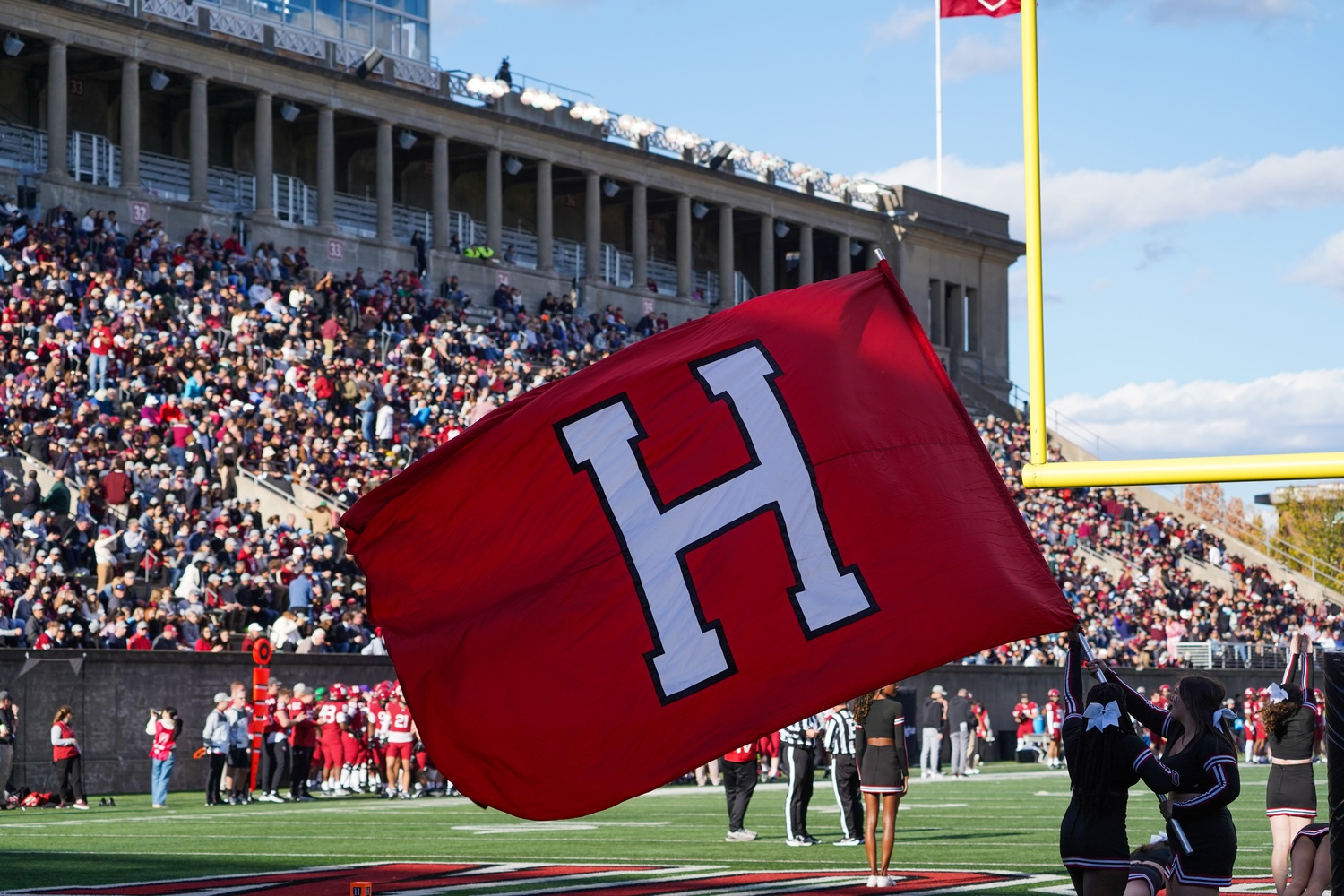
News
When Professors Speak Out, Some Students Stay Quiet. Can Harvard Keep Everyone Talking?

News
Allston Residents, Elected Officials Ask for More Benefits from Harvard’s 10-Year Plan

News
Nobel Laureate Claudia Goldin Warns of Federal Data Misuse at IOP Forum

News
Woman Rescued from Freezing Charles River, Transported to Hospital with Serious Injuries

News
Harvard Researchers Develop New Technology to Map Neural Connections
Opting Out of the NCAA Settlement Was the Right Call
Tailgates, marching bands, and flyovers: There is perhaps nothing more American than college sports.
But this staple of Americana has changed significantly in the last five years. With the introduction of name, image, and likeness rights, athletes can now be compensated for their hard work through sponsorships and brand deals. Coupled with an expanded NCAA transfer portal, the college athlete landscape has dramatically changed. Athletes jump from school to school, choosing whichever location offers them the most playing time — or money.
As if college sports needed more professionalization, the recent National Collegiate Athletic Association antitrust settlement between schools and athletes further expanded NIL principles. Thankfully, the Ivy League — including Harvard — opted out.
Under the terms of the settlement, colleges will be able to spend tens of millions of dollars purchasing their athletes’ NIL rights, effectively paying them to play on their teams. Although the idea of compensating athletes certainly has noble origins, the current model has become so far removed from its original purpose that it no longer aligns with the spirit of Ivy League athletics.
The NIL movement arose out of apparent injustice: despite raking in cash for their universities and the NCAA, athletes themselves pocketed nothing. For some, the money their school earned from their play will far outpace anything they will earn.
A common refrain from opponents of NIL is that a college degree is payment enough. At most schools, this argument would seem ridiculous, as a bachelor’s degree is more a prerequisite than a qualification in the current job market. But given the value of a Havard degree, the claim holds actually true for Harvard’s graduates — athletes receive a world-class education and all the perks that come with it, including hefty postgraduate salaries.
Frankly, it seems absurd for the University to invest millions of dollars into paying the 130 or so members of our football and men’s basketball teams — typically the moneymakers of an athletic department. If these teams represented a core part of the University’s identity — like at most SEC or Big 10 schools, for example — it would make sense to pay them accordingly. But let’s be honest: Outside of The Game and the Head of the Charles, Harvard students rarely attend sporting events.
To be frank, despite boasting about its “42 Division 1 teams,” Harvard does not have a sports culture.
Some might claim that rejecting NIL payments will hurt Harvard’s traditionally competitive teams — think squash, fencing, and rowing. These sports are patrician, boasting high barriers to entry and attracting athletes from affluent families. NIL money or not, polo players are unlikely to feel the hurt in their checkbooks.
Aside from the practical angle, the Ivy League has a historical precedent to uphold, too. The League has long been a bastion of college rivalry and a well-rounded student-athlete experience.
Before Alabama, there was Yale: the Bulldogs were the preeminent college football school during the height of the amateur era, before college athletes expected to make a living playing their sport. As athletics became more commercialized, the League eschewed financial incentives for student-athletes — like refusing to offer athletic scholarships — damaging its competitiveness and thus relegating it to the margins of college sports.
While the Ivy League might not be the most competitive, its athletes and fans are truly passionate about the sport for its own sake. And that was part of the magic of college sports before NIL: It was pure and uncorrupted by money.
By continuing to separate sports from money, the Ivy League can maintain its special position in American sports as a place where the spirit of the game stays central to its mission.
Henry F. Haidar ’28, a Crimson Editorial Editor, lives in Wigglesworth Hall.
Want to keep up with breaking news? Subscribe to our email newsletter.

